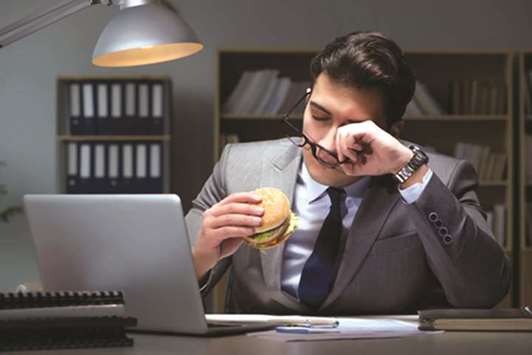If you are a night owl, your natural circadian rhythm is primed to make you feel more alive when the sun goes down. Your eyes shine brighter, your mind feels more alert. The whole world seems to hum.
The bad news is that not being an early bird may be bad for your health, from weight gain to premature death. As Time notes, being a night owl has been linked to higher blood pressure. A 2013 study in the journal Chronobiology International reported that “evening types” were 30% more likely than “morning types” to have high blood pressure.
Dr Andrew Varga, professor of medicine, pulmonary, critical care and sleep medicine at Icahn School of Medicine and Mount Sinai Health System, says that lifestyle habits like unhealthy eating or lack of exercise may be part of the problem, Time reports.
Staying up late means that you also may be getting up later. Unfortunately, that means you can’t go for an early morning run or hit the gym before work. According to a 2014 research abstract in the journal Sleep, night owls have more trouble finding time to exercise and maintaining a regular exercise schedule. They tend to be more sedentary as a result.
As if all of that weren’t bad enough, it seems that you don’t just miss the worm if you’re not an early bird. You might also tend to overeat and get fat.
“When people go to bed late, they’re up living their lives - and one of the things they’re often doing is eating,” Varga told Time. “If your bedtime is 3 in the morning, you’re probably eating around 11pm or midnight, and that’s been known to create problems with the way your body handles and metabolises food.”
Some health experts warn that eating after dark disrupts the body’s natural overnight fasting, which undercuts the ability to burn fat. Night owls also consume more calories per day than early birds, according to a 2011 study in the journal Obesity. That may have something to do with the fact that willpower decreases as a long day wears on.
The scariest news of all is that night lovers face a higher risk of premature death. As Forbes notes, a large, observational study of roughly half a million participants from the UK Biobank Study, found that evening types have a 10% higher risk of premature death than larks. So that whole early to bed, early to rise thing may be true after all. — Tribune News Service

The businessman late at night eating a burger.


